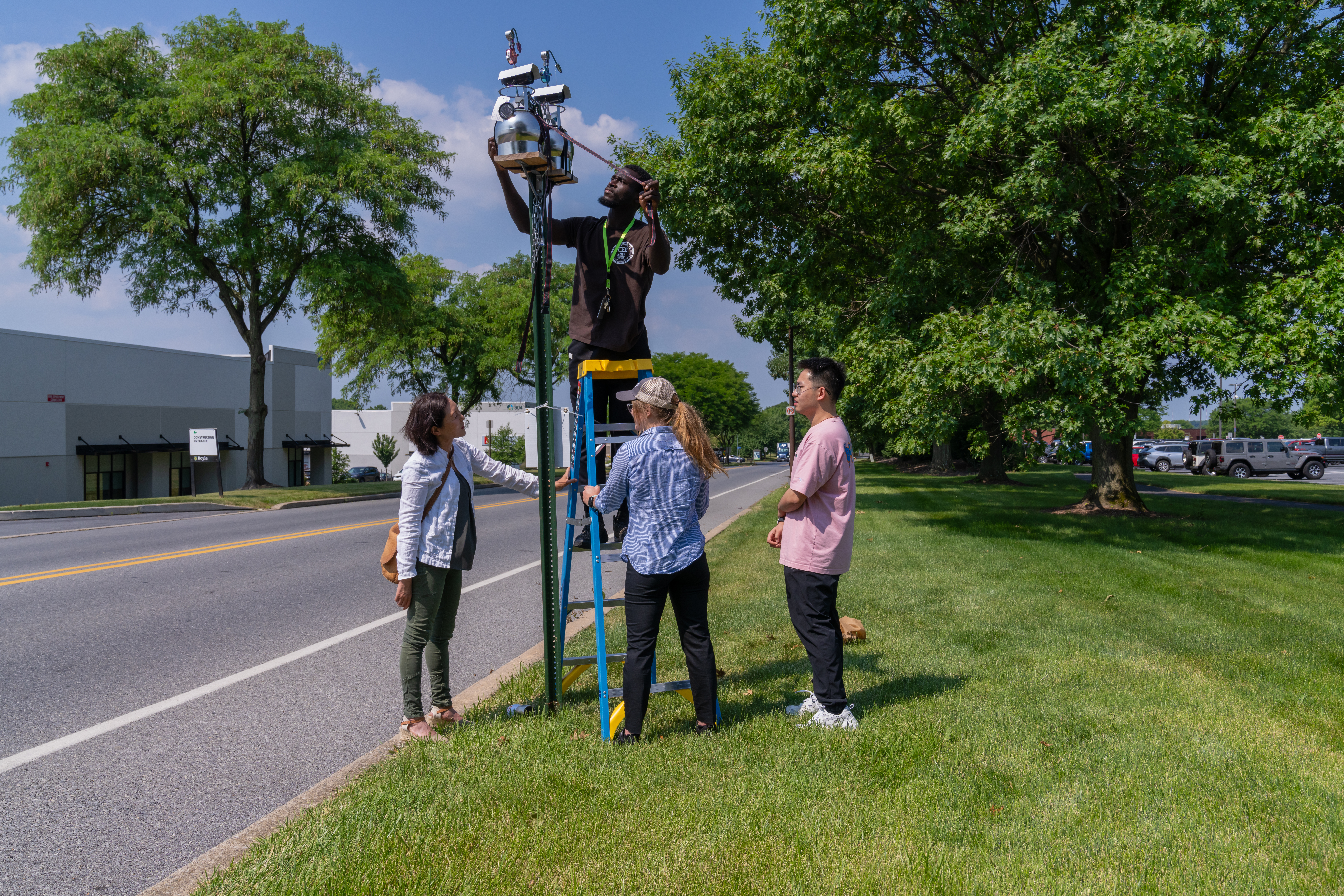Outdoor air pollution has increasingly become a rising public health concern. As of 2020, the state of Pennsylvania had one of the highest excess mortalities due to air pollution, and the Lehigh Valley was one of the country’s metropolitan regions with the concerning rates of air quality. The city of Allentown, in particular, has one of the highest rates of asthma and lung cancer in the country.
Poor air quality is a widely-known risk factor for a variety of respiratory health issues, including lower respiratory infection, asthma, and chronic obstructive pulmonary disease (COPD), referred to as chronic respiratory syndrome (CRS).
In response, Hyunok Choi, an associate professor in the Department of Community and Population Health within the College of Health, is embarking on a multi-year research project called Pennsylvania Asthma-COPD Syndromic Surveillance (PASS). Choi has recently received funding through joint support between the National Science Foundation and the National Institutes of Health through the Smart Health and Biomedical Research in the Era of Artificial Intelligence and Advanced Data Science program.
Choi is an epidemiologist with expertise in children’s prenatal and postnatal exposures to indoor and outdoor environmental pollution. PASS represents the first study to explore how the recurrent air pollution episodes and erratic weather patterns in Pennsylvania, New Jersey, and Delaware contribute to outbreaks of CRS in all age groups within certain geographic locations.
Choi and her team will be developing a system that detects and warns the public about the impending or early phase of an outbreak of respiratory outcomes, she said.
“This is an information building, information sharing mechanism that nimbly analyzes and shares information that the public and the healthcare professionals need to know,” she said. “Our first question of interest is, what areas are particularly vulnerable for these recurrent outbreaks?”
“Then the second question is, how early and with what precision can we inform the stakeholders,” she continued, “and the third question is, what can we do to understand the mechanisms of why such a recurrence happens?”
The project is interdisciplinary in scope, with collaborators from Lehigh including Parv Venkitasubramaniam, professor of electrical & computer engineering at the P.C. Rossin College of Engineering and Applied Science; and Jeremy Mack, data and visualization specialist. She’ll also be working with the Pennsylvania Health Care Cost Containment Council (PHC4), and there will be research opportunities for students.
Choi began the project with the goal of building a shareable data lake or database. They are currently in the second phase of building the syndromic surveillance—the collection of health-related data that is received in near real-time—over the next four-year period, she said.
PASS “will attempt to restore the power back to the people through knowledge and agency,” said Choi.
“It also is expected to inform the public directly, if they live in an area that is very prone to poor air quality. We hope to tell them what they are at elevated risk for and potentially how they can mitigate the risk,” she said. “We want to understand why such an area is very vulnerable to recurrent risk of rising respiratory health outcomes, recurring lower respiratory infection, asthma, and COPD.”
The team is also in conversation with clinicians in the Lehigh Valley so that they will be able to strategize further to improve the management of the patient flow, disease burden, and population needs.
